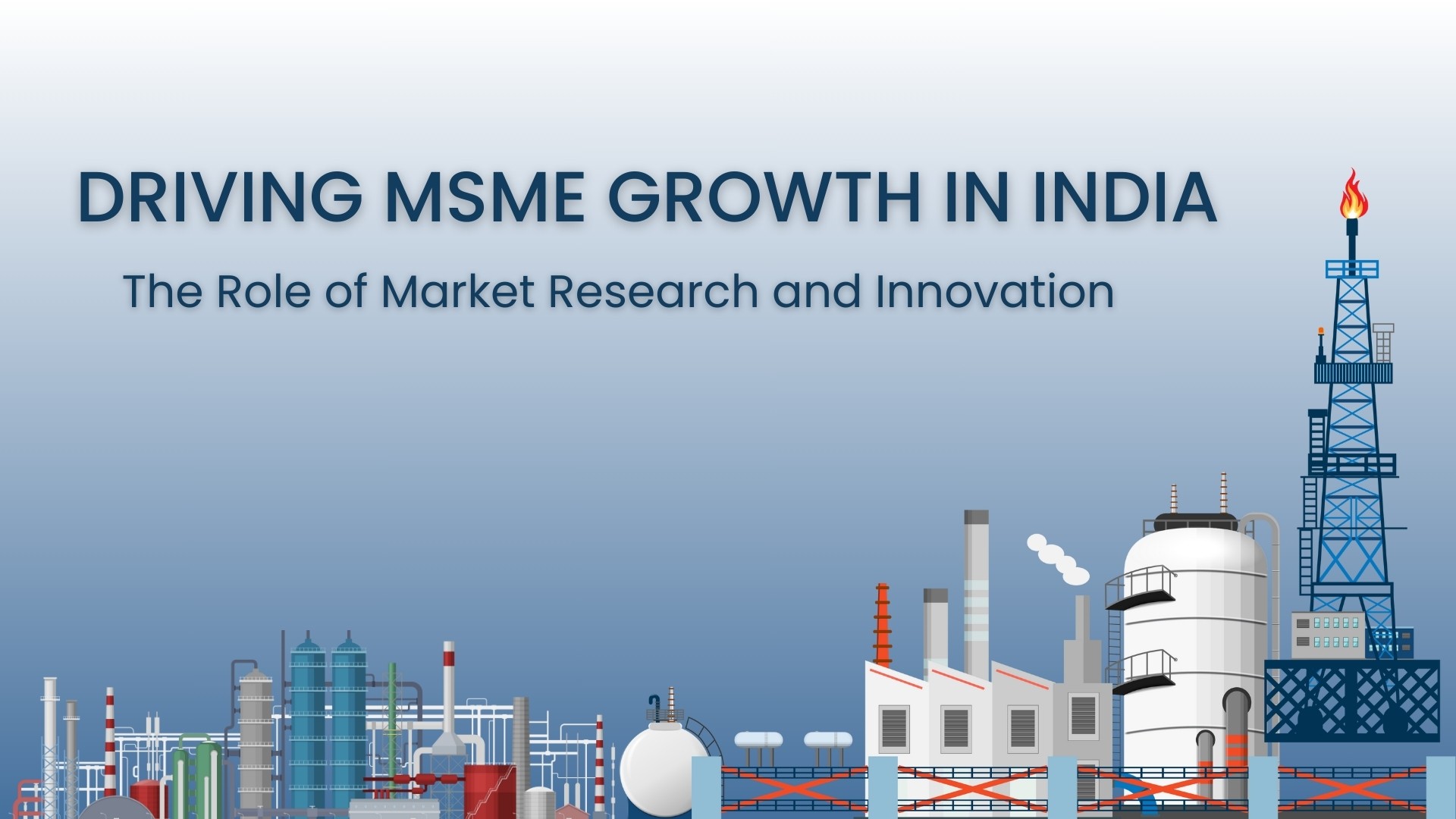
India's agriculture is no longer confined to sowing and harvesting—it is entering an era of purposeful farming, aligned with consumer health, technological innovation, and global nutrition trends. The focus is gradually shifting from traditional calorie-based farming to functional agriculture, where crops are cultivated for food security and their nutritional and therapeutic value.
In a post-pandemic landscape where health, immunity, and preventive nutrition dominate household priorities, the agricultural sector is becoming a critical foundation of India’s wellness ecosystem. Functional agriculture reflects this evolution. Farmers, FPOS, and agripreneurs are now growing crops like iron-rich millet, protein-fortified pulses, moringa, turmeric, and zinc-dense wheat. These are no longer niche—these crops are backed by demand from D2C FoodTech brands, wellness companies, and global buyers in nutraceutical markets.
India is thus witnessing the rise of a nutrition economy, powered by biofortified produce and digitally enabled value chains. At Velox Consultants, we interpret this as a systemic transformation. It's not just about better farming; it's about integrating agriculture, innovation, and market demand to build the next generation of agribusiness models for India and the world.
India’s functional food market is projected to cross $35 billion by 2030, growing at a CAGR of over 12% from 2025 to 2030. This isn’t simply due to rising income or dietary changes—consumers are reevaluating what goes into their bodies, and brands are responding. The result? FoodTech companies no longer focus solely on flavour or convenience—they’re sourcing ingredients with functional benefits: digestive support, energy balance, protein content, antioxidant value, and immunity enhancement.
This is creating a shift in how brands operate:
🔍 Who is driving upstream demand?
📌 Strategic Insight:
This growing demand means ingredient-led sourcing strategies are food businesses’ next big growth lever. Brands that can trace their ingredients to specific Agri belts, backed by compliance and consistency, will enjoy higher margins and consumer trust.
This presents a window of opportunity for agribusinesses to move beyond bulk supply into high-value partnerships with processors, wellness brands, and international retailers.
As India's functional food market surges, its supply chain transforms remarkably, fueled by innovation and strategic sourcing. At the forefront are bio factories—specialised farm units designed for precision, ensuring micronutrient consistency, traceability, and market-ready crops. These units, often partnered with Farmer Producer Organisations (FPOS), are powered by digital Agri-startups and supported through public or blended finance, creating a robust ecosystem for growth. Key sourcing clusters are driving this revolution.
Gujarat and Rajasthan shine with climate-resilient millet, moringa, and turmeric, while Madhya Pradesh delivers fortified wheat and protein-packed soybeans. Maharashtra is rapidly emerging as a hub for herbal crops, pulses, and moringa powder exports, and Telangana and Karnataka lead with sophisticated FPO networks cultivating therapeutic plants. The supply chain is further elevated by cutting-edge innovations like controlled input farming, drip irrigation and micronutrient blending for superior yields.
Farm-level micronutrient testing and digital grading ensure unparalleled quality, while mobile processing units maximise postharvest value, reducing waste and enhancing efficiency. Together, these advancements are not just meeting the rising demand for functional foods but redefining India’s role as a global leader in sustainable, health-driven agriculture.
📌 Insight:
Supply chains must be decentralised, tech-enabled, and demand-linked. Regional processing centres and co-owned postharvest infrastructure will define the next phase of scalable agribusinesses. Velox helps MSMES and cooperatives identify strategic roles in these hubs—from contract manufacturing to B2B aggregation.
India's functional farming sector is poised for exponential growth, propelled by a cutting-edge technology stack that ensures scalability, quality, and consumer trust. Innovation, from crop nutrition forecasting to robust traceability platforms, is at the heart of this revolution, critical for maintaining stringent quality assurance and compliance in functional agriculture.
Emerging technologies are reshaping the landscape: satellite and drone-based crop monitoring deliver precise insights into micronutrient density. AI-driven soil and water testing optimise crop nutrition for maximum health benefits. Blockchain and QR-based traceability systems guarantee clean label certification and export readiness, fostering transparency and trust. Digital marketplaces are bridging the gap, connecting farmers with wellness-focused buyers to meet soaring demand.
Powering this transformation are Indian AgriTech pioneers like Fasal and CropIn, which provide smart farming solutions for predictive yield management, and Tracex and SourceTrace, offering blockchain-enabled traceability tools. Platforms like DeHaat and AgNext deliver precision agricultural inputs and AI-driven grading, while Absolute leads in bio input innovation, championing natural farming and climate resilience. Together, these advancements are not just scaling functional farming—they’re redefining India’s agricultural future, blending technology and tradition to deliver nutrient-rich, trustworthy products to the world.
📌 Strategy Perspective:
Technology is the foundation of nutritional transparency and process control. We advise agripreneurs and processors to integrate these tools as part of their scale strategy, helping them enhance yield, consistency, and ESG outcomes for buyers.
As the FoodTech ecosystem matures, it’s becoming more decentralised and partnership-driven. Startups and legacy FMCG firms are outsourcing key parts of their supply chain—from sourcing to packaging—by working with regional Agri processors and MSMES.
This shift creates low-capex, high-margin models for Agri players who can deliver quality and scale.
💼 Emerging business models:
🤝 Examples of ecosystem innovation:
📌 Strategic Signal:
You don’t have to build a consumer brand to thrive—you can power one. Velox helps identify where your business fits in the functional agriculture value chain and how to co-create supply partnerships that minimise risk and maximise value.
Functional agriculture has scale potential, but the ecosystem is still fragmented. Most of India’s smallholder farmers remain unfamiliar with the economics or standards required to enter functional value chains. Meanwhile, postharvest infrastructure and regulatory systems are catching up.
⚠️ Key challenges:
🚧 B2B implications:
Functional agriculture is reshaping India’s agri-business landscape—blending localised innovation, nutrition science, and sustainable sourcing to unlock high-impact, high-value growth across food, wellness, and export ecosystems.
Rising consumer demand for plant-based, fortified, and traceable foods drives a shift from volume-based agriculture to value-based bio-farming. At Velox Consultants, we decode these emerging trends with actionable intelligence, enabling MSMES, food-tech brands, and agribusiness investors to capitalise on India's transition to a bioeconomy built on wellness and resilience.
We track where innovation meets opportunity, from cluster-led production models to functional food exports.
📩 Partner with our experts for a tailored Market Opportunity Deck or a custom business feasibility plan to position yourself at the forefront of agri-innovation. Whether you’re exploring nutraceuticals, smart food systems, or backwards-integrated supply chains, Velox delivers clarity where it counts.




